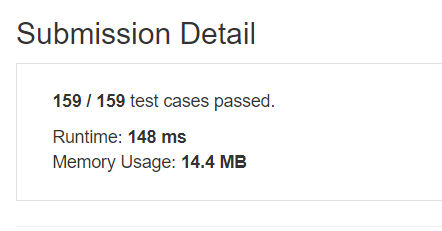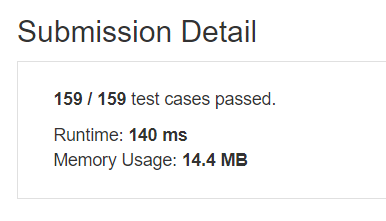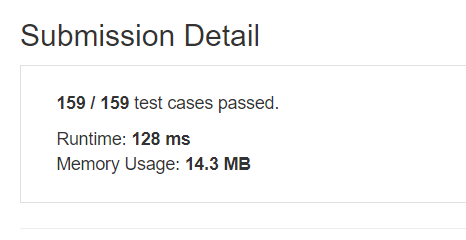Set Matrix Zeroes
[Leetcode][Arrays][Matrix]
Problem Statement
Given a m x n matrix, if an element is 0, set its entire row and column to 0. Do it in-place.
Example 1:
Input:
[
[1,1,1],
[1,0,1],
[1,1,1]
]
Output:
[
[1,0,1],
[0,0,0],
[1,0,1]
]Example 2:
Input:
[
[0,1,2,0],
[3,4,5,2],
[1,3,1,5]
]
Output:
[
[0,0,0,0],
[0,4,5,0],
[0,3,1,0]
]Follow up:
- A straight forward solution using O(mn) space is probably a bad idea.
- A simple improvement uses O(m + n) space, but still not the best solution.
- Could you devise a constant space solution? [URL]
#collapse-hide
from typing import List
class Solution:
def setZeroes(self, matrix: List[List[int]]) -> None:
"""
Do not return anything, modify matrix in-place instead.
"""
temp = []
matrixCopy = []
for row in matrix:
for element in row:
temp.append(element)
matrixCopy.append(temp)
temp = []
for i in range(len(matrix)):
for j in range(len(matrix[0])):
if matrixCopy[i][j] == 0:
for k in range(len(matrix[0])):
matrix[i][k] = 0
for k in range(len(matrix)):
matrix[k][j] = 0
return matrix
sol = Solution()
sol.setZeroes([
[1,1,1],
[1,0,1],
[1,1,1]
])

Worst case performance in Time: $O(m*n)$
Worst case performance in Space: $O(m*n)$
Is Inplace? : False
- Traverse the original matrix and look for 0 entities
- if found, record the i, j values using auxilary variables
- Using sets for recording i, j vlues would be benifiting as we overcome duplicate row, column values ahead.
- Finally, re iterate over the original matrix, for every cell make a check
if i in rows or j in columns, update the values to 0.
#collapse-hide
class Solution:
def setZeroes(self, matrix: List[List[int]]) -> None:
"""
Do not return anything, modify matrix in-place instead.
"""
rows = set()
columns = set()
for i in range(len(matrix)):
for j in range(len(matrix[0])):
if matrix[i][j] == 0:
rows.add(i)
columns.add(j)
for i in range(len(matrix)):
for j in range(len(matrix[0])):
if i in rows or j in columns:
matrix[i][j] = 0
return matrix
sol = Solution()
sol.setZeroes([
[1,1,1],
[1,0,1],
[1,1,1]
])

Worst case performance in Time: $O(m*n)$
Worst case performance in Space: $O(m+n)$
Is Inplace? : False
#collapse-hide
class Solution:
def setZeroes(self, matrix: List[List[int]]) -> None:
"""
Do not return anything, modify matrix in-place instead.
"""
rowFlag, colFlag = False, False
for i in range(len(matrix)):
for j in range(len(matrix[0])):
if i == 0 and matrix[i][j] == 0:
rowFlag = True
if j ==0 and matrix[i][j] == 0:
colFlag = True
if matrix[i][j] == 0:
matrix[0][j] = 0
matrix[i][0] = 0
for i in range(1, len(matrix)):
for j in range(1, len(matrix[0])):
if matrix[i][0] == 0 or matrix[0][j] == 0:
matrix[i][j] = 0
if rowFlag == True:
for i in range(len(matrix[0])):
matrix[0][i] = 0
if colFlag == True:
for i in range(len(matrix)):
matrix[j][0] = 0
return matrix
sol = Solution()
sol.setZeroes([
[1,1,1],
[1,0,1],
[1,1,1]
])

Worst case performance in Time: $O(m*n)$
Worst case performance in Space: $O(1)$
Is Inplace? : True